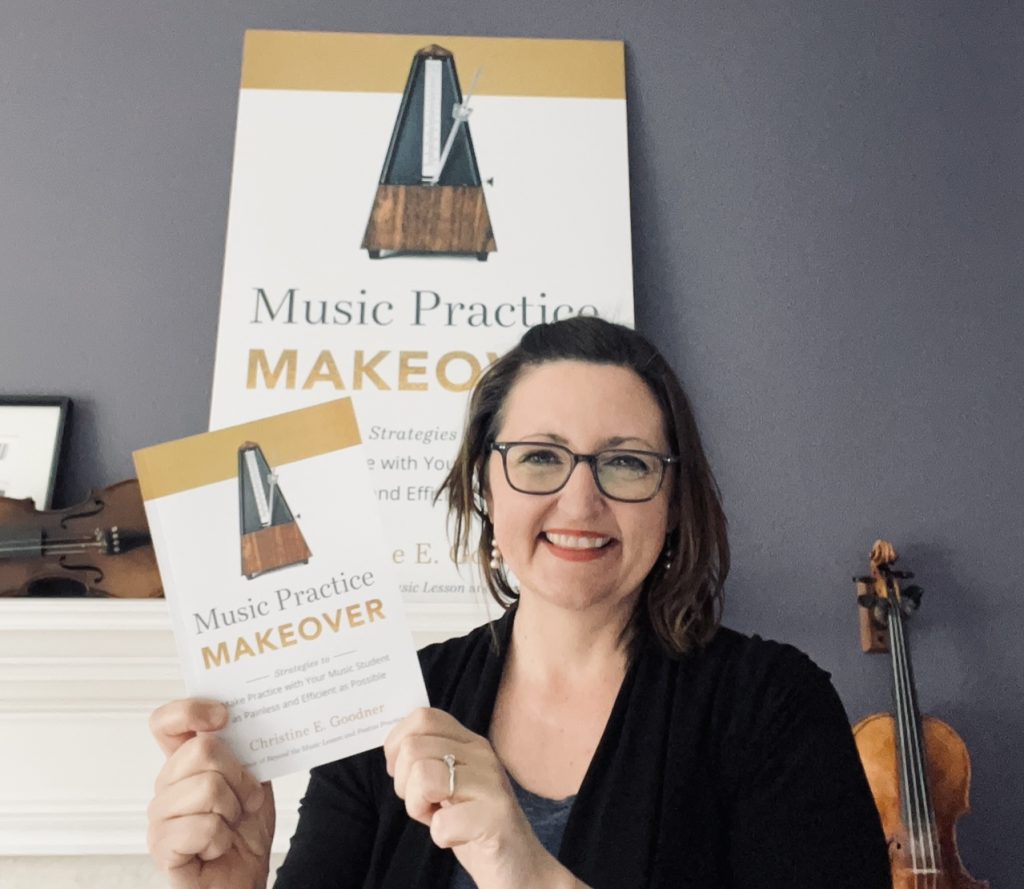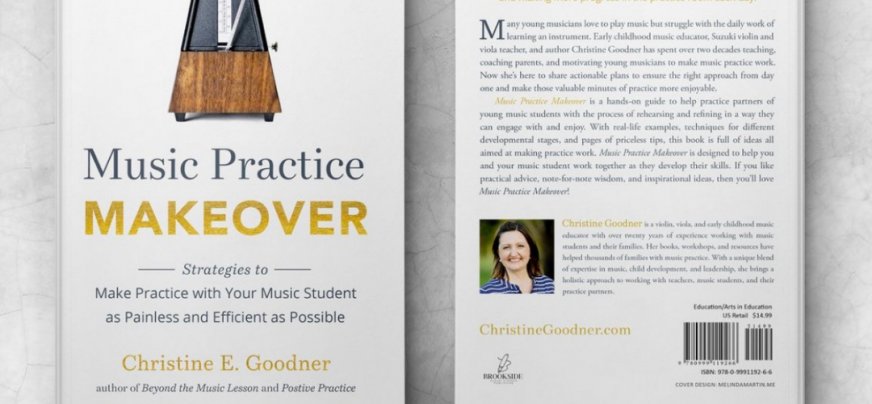Why do some students love to practice right away, while others find music practice a real challenge? What can we do to support young musicians as they both learn to play their instruments and learn how to practice effectively?
These are a few of the questions I spend my time writing and speaking about. I also dive into them in-depth in my new book, Music Practice Makeover: Strategies to Make Practice with Your Music Student as Painless and Efficient as Possible.
As someone who has played the violin since childhood, I don’t remember what it was like not to have music and music practice in my life. Sometimes to reach my students, I have to step back from what I take for granted and try to see music practice from their eyes, especially the students who don’t intuitively understand how to practice effectively or don’t have families with a music background.

We know as music educators that two different skills are being developed in the practice room: how to play our instrument and how to have an effective practice session itself. Helping families of music students see these as two different skills that may develop at very different rates can reduce a lot of stress related to practice.
A student can love to play their instrument, make music with others, and be part of an ensemble. They can love to attend lessons or perform, and at the very same time, they can dislike the practice they need to get there. Or, at the very least many of them may find it daunting or a chore.
The message I always want to share with families is that music practice is a skill that students can learn. In the early stages, resistance to the deep and focused work in the practice room is not at all unusual. We don’t have to take any of this as a sign that our child isn’t cut out for music or that they don’t like to play their instrument.
Instead of resistance to practice being a sign something is wrong, often it’s a sign we need some coaching through practice. We may need creative ideas to make high-quality repetitions more tolerable or incentives to get in a certain number of practice days until the student is motivated by the music itself.
We may need to support executive function skills like getting started, planning out practice, and switching tasks even if we don’t help with learning notes themselves at home with our children.
As a student’s skills on the instrument and maturity increase, the discipline of music practice often starts to make more sense to them. Motivation to practice often increases because students want to make music with peers, or learn a particular piece of music that will take diligent work.
Supporting young musicians as they learn both instrumental skills and practice skills is the key to getting them to that point. I believe talking about developing our practice skills and normalizing the fact that they may need coaching and support will help more students stick with it and keep playing. Helping families with resources to support that process is one way we all can help.
The message I always want to share with families is that music practice is a skill that students can learn. In the early stages, resistance to the deep and focused work in the practice room is not at all unusual.
Christine Goodner
Christine Goodner’s new book Music Practice Makeover: Strategies to Make Practice with Your Music Student as Painless and Efficient as Possible is a guide to helping families support their music students through the ups and downs of learning to practice and play an instrument. You can find a digital or paperback copy at www. SuzukiTriangle.com/books/ or through Amazon.com.
Christine Goodner is a Suzuki trained violin and early childhood education teacher in Hillsboro, OR where she runs her studio Brookside Suzuki Strings Christine is the author of three books about music practice, host of the Time to Practice podcast, and a frequent speaker on the topic of supporting young musicians with music practice. You can find more about her projects at ChristineGoodner.com

